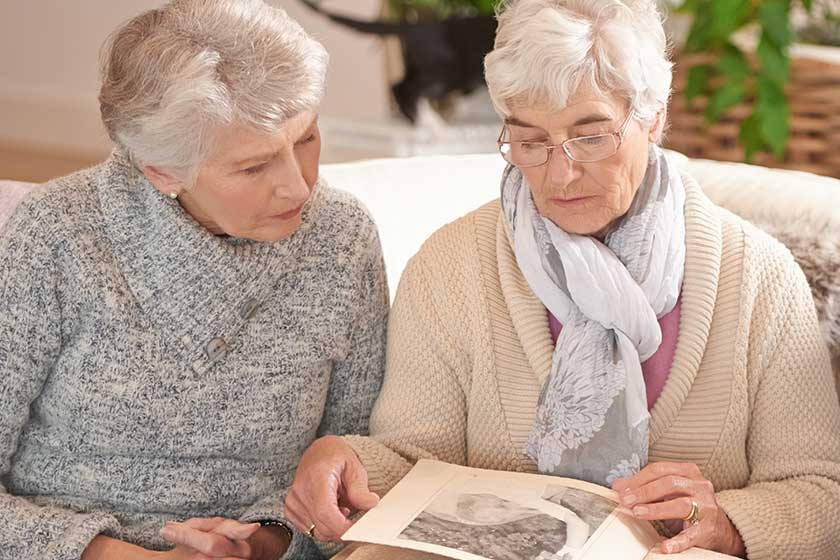Independent living apartments in Little River, TX offer residents a vibrant and fulfilling lifestyle. These communities are designed to provide a sense of freedom and autonomy while also fostering a strong sense of community. One of the most powerful ways residents can create meaningful activities in these apartments is by sharing memories. In this article, we will delve into the significance of sharing memories and how it can enhance the lives of residents living independently in Little River, TX.
The Essence of Independent Living Apartments
Independent living apartments in Little River, TX are a haven for residents seeking a maintenance-free and socially engaging lifestyle. These apartments are thoughtfully designed to cater to the unique needs and preferences of older adults. Residents enjoy a variety of amenities, including fitness centers, dining options, and scheduled activities, all aimed at promoting a vibrant and fulfilling life during their golden years.
The Importance of Meaningful Activities
As residents transition into independent living apartments, maintaining an active and purposeful life becomes paramount. Engaging in meaningful activities not only keeps the mind sharp but also provides emotional fulfillment. These activities can include hobbies, social interactions, and, notably, the sharing of memories.
The Power of Sharing Memories
Sharing memories is a potent way for residents to connect with one another and create meaningful activities within independent living apartments in Little River, TX. Here are some reasons why it holds such significance:
Building Bonds
Memory sharing creates a sense of camaraderie among residents. When residents share stories from their past, they often discover common experiences, interests, and values. This shared history fosters a deeper connection and helps form lasting friendships within the community.
In the communal spaces of independent living apartments, residents frequently gather to share tales from their youth or reminisce about significant life events. These exchanges often lead to newfound connections and an increased sense of belonging. The bonds formed through memory sharing can provide essential social support and combat feelings of isolation that some residents may experience.
Preserving Personal Histories
Each resident in an independent living apartment has a unique life story. Sharing memories allows residents to preserve their personal histories, ensuring that their life experiences are not forgotten. It provides an opportunity to pass down wisdom and life lessons to future generations.
The act of sharing memories serves as a living record of one’s personal journey. It allows residents to document their experiences, values, and traditions, ensuring that their legacy endures. This preservation of personal histories can be a source of pride and comfort for residents, knowing that their life’s narrative will continue to inspire and educate future generations.
Stimulating Cognitive Function
Engaging in conversations about past experiences requires cognitive effort. Memory recall, storytelling, and active listening all contribute to mental stimulation. This helps residents maintain cognitive function and may even delay the onset of cognitive decline.
The mental exercise involved in recalling and recounting memories is akin to a workout for the brain. It challenges cognitive functions such as memory retention, language skills, and problem-solving abilities. Regular engagement in memory sharing activities can help residents keep their minds sharp and agile, contributing to a higher quality of life as they age.
Creating Meaningful Activities
When residents come together to share memories, they often find creative ways to turn those stories into meaningful activities. These activities can include storytelling sessions, themed dinners, or even collaborative art projects that celebrate their shared experiences.
Memory sharing doesn’t stop at storytelling; it inspires residents to transform their narratives into engaging and purposeful activities. For example, a group of residents may decide to host a “decades-themed” dinner, where they dress up and share dishes from their favorite eras. Such events not only provide entertainment but also encourage residents to actively participate in planning and organizing, fostering a sense of purpose and achievement.
Fostering Emotional Well-Being
The act of sharing memories can be emotionally therapeutic. It allows residents to express their feelings and experiences, providing an outlet for emotional release. This can be particularly beneficial for those who may be dealing with loss or adjusting to a new chapter in life.
Residents in independent living apartments may face various life changes, from retirement to the loss of loved ones. Engaging in memory sharing provides a safe and supportive space for residents to express their emotions. It can be a cathartic experience that helps them navigate the complex emotions that often accompany major life transitions.
Enhancing Social Interaction
Meaningful activities that revolve around memory sharing naturally encourage social interaction. These interactions can be instrumental in preventing feelings of isolation and loneliness, which can be common among residents.
The social benefits of memory sharing cannot be overstated. It encourages residents to engage with one another on a personal level, fostering a sense of community and mutual support. The friendships formed through these interactions can be a vital source of emotional well-being and companionship, enriching the lives of residents in independent living apartments.
Celebrating Life’s Journey
Sharing memories is a way to celebrate the richness of life’s journey. It helps residents focus on the positive aspects of their past, fostering a sense of gratitude and contentment. This positive outlook can have a profound impact on overall well-being.
The act of sharing memories often centers on joyous and significant moments in one’s life. By revisiting these moments and celebrating the experiences that have shaped them, residents can cultivate a profound sense of gratitude. This attitude of appreciation can enhance their overall quality of life and contribute to a more optimistic and fulfilling retirement experience.







